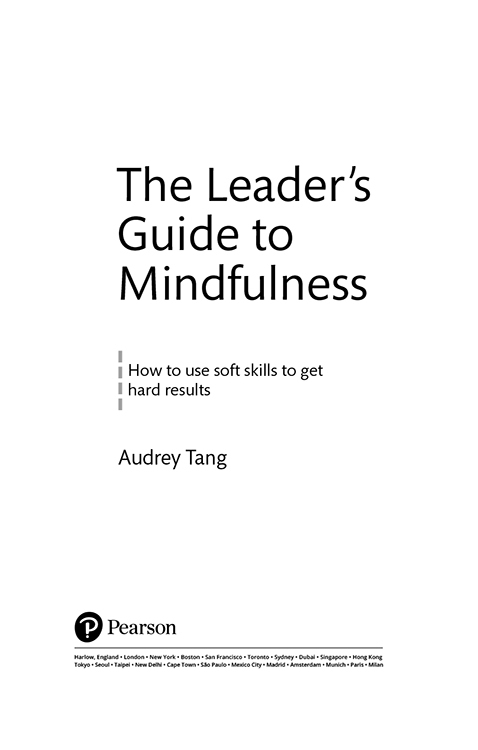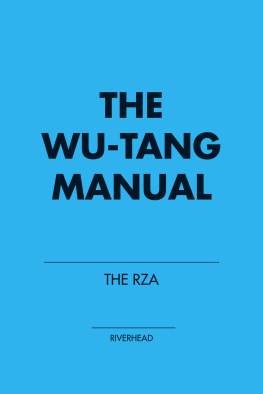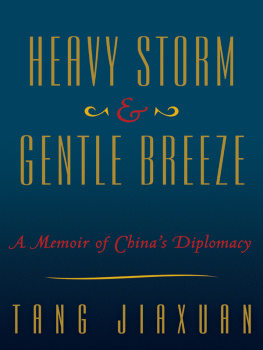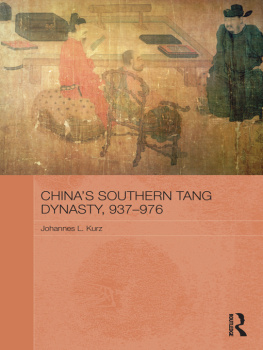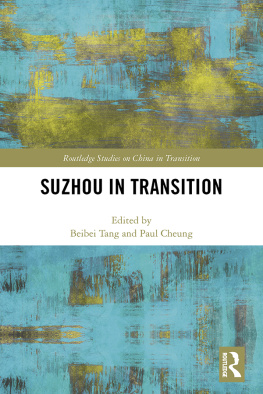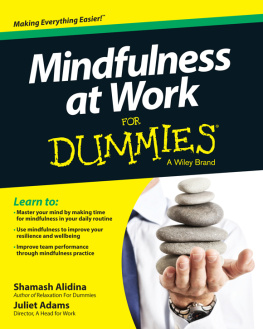Contents
About the author
Audrey is a chartered psychologist (CPsychol), and the author of Pearson's Be A Great Manager Now (Book of the Month July 2016 in WH Smith Travel Stores.). She is a CPD accredited speaker, trainer and qualified FIRO-B and NLP practitioner. She is the founder of CLICK Training, where she practices as a development coach and training consultant, and is the resident psychologist on the Chrissy B Show (Sky191), the only UK TV programme dedicated to mental health and well-being.
Her doctorate focused on the training and emotional support of customer-facing professionals. During her research she lectured on Brunel University's Business Undergraduate and Management courses, and subsequently trained as a coach within the NHS. Prior to training and coaching, she was a secondary school drama teacher and Head of Psychology (QTS), later progressing to programme manager for vocational qualifications in Supporting Teaching and Learning, and Childcare, Learning and Development within Further Education. She also runs a community theatre group, CLICK Arts, with the aim of using the arts to build confidence.
Her book Be a Great Manager Now has since been licensed to 'Skill Pill' online learning and translated into Russian, Arabic and Chinese. CLICK Training is also currently the only CPD accredited training provider for Team Building using Escape Rooms, and she delivers her Team Trials programme with partners in Germany, Switzerland and Greece.
Publishers acknowledgements
We are grateful to the following for permission to use copyright material:
Text
010 WNYC Studios: Note to Self Podcast (2018) Dan Harris Knows All Your Excuses for Not Meditating (accessed 9/4/18) 211 Wah Seong Press: Seet CK (1961) Discourses on Buddhism, Wah Seong Press, Malacca 211 Wah Seong Press: Seet CK (1961) Discourses on Buddhism, Wah Seong Press, Malacca
Photos
016 Pearson Asset Library: SunnySideUp/Shutterstock 022 Pearson Asset Library: KlektaDarya/Shutterstock 022 Pearson Asset Library: KOUNADEAS IOANNHS/Shutterstock 028 Pearson Asset Library: Dmitry Elagin/Shutterstock 103 Pearson Asset Library: Dmitrij Skorobogatov/Shutterstock 105 Pearson Asset Library: litabit/Shutterstock 116 Pearson Asset Library: szefei/123RF 122 Pearson Asset Library: FotoYakov/Shutterstock 125 Pearson Asset Library: Quang Ho/Shutterstock 052 Shutterstock: Normana Karia/Shutterstock Back Cover Nick Freeman: Nick Freeman.
Introduction
The opening questions:
- What do you think when you hear the term mindfulness?
- What do you believe mindfulness involves?
- How might mindful practice contribute to your performance as a leader?
The problem with mindfulness
Mindfulness has become so mainstream it seems to have lost meaning.
Note to Self Podcast, 2018
Whenever I ask the question of what mindfulness means, around 50 per cent of my audience will invariably say, meditation, breathing and awareness sometimes, they also add yoga. The other 50 per cent will call it hokey and not wish to hear any more.
Yet, the concept has been embraced within the contemporary business environment, even universities are adding a Mindfulness in business course to their programmes, and there is a consistent flow of articles citing big names like Google, Apple and Intel celebrating the organisational gains that mindfulness brings whether individuals like it or not.
The benefits often are espoused in blogs, news articles and research papers and, to date, including mindfulness in day-to-day working results in:
- stress levels dropping
- sleep quality improving
- pain dropping
- an estimated $3,000 per-employee increase in productivity for the company each year
(Gelles, 2015)
- improved creativity, well-being and focus
- stronger enthusiasm in projects and meetings
(Intel Press, 2013)
- improved decision making
- becoming better listeners
(Gelles, 2012)
- better focus and open mindedness
- better collaboration
- a climate of openness, acceptance and empowerment
- emotionally and intellectually available leaders
- a switch from hurried multitasking and its psychological blind spots, to one of curiosity, flexibility and opportunity.
(Williams, 2016)
The evidence is clear that organisations are onto something by incorporating mindfulness, so why do so many still need convincing?
According to Barnett, lunchtime wellbeing sessions now appearing in some companies and institutions are if they are doing anything at all just making people docile (Barnett, 2015). Worse still, rather than incorporate mindfulness as an additional benefit, some US organisations have been providing their employees with mindfulness training in place of holiday entitlement or financial benefits (Whippman, 2016).
Further, the big names within the field of mindfulness cannot agree on what mindfulness actually is and how it is practised:
Mindfulness means paying attention in a particular way: on purpose, in the present moment, and nonjudgmentally.
Jon Kabat-Zinn
Mindfulness shows us what is happening in our bodies, our emotions, our minds, and in the world. Through mindfulness, we avoid harming ourselves and others.
Thich Nhat Hanh
Mindfulness in its most general sense is about waking up from a life on automatic, and being sensitive to novelty in our everyday experiences. With mindful awareness the flow of energy and information that is our mind enters our conscious attention and we can both appreciate its contents and come to regulate its flow in a new way.
Daniel J. Siegel
However, their continued prominence comes with substantiating research findings that there are huge benefits to mindfulness within organisations (even if the concept is still somewhat unframed, uncodified, and gives rise to scepticism of the hippie stuff (Confino, 2014).
Therefore, it seems that the problem of mindfulness is not that it does not work but that it is misunderstood. As such, while this book will cover the background theory of mindfulness and explain its usefulness to the leader, it will approach the field in a much more contemporary way by applying the techniques.
How this book works
Each chapter opens with self-reflection prompt questions and includes practical mindfulness exercises and meditations focused on the topic at hand. (Many of these activities can be done alone, with your team, or as part of an organisation-wide workshop.) To progress your learning further, chapters conclude with a toolkit, offering a reminder of the key points, challenging you to introduce simple mindfulness into your day, and developing some of the techniques used within the chapter. Of course, some theory is essential you may want to convince a board to implement mindfulness sessions or workshops, or perhaps make changes to the working day to enhance well-being, therefore the exercises are con-textualised through an overview of the background research; but, as to tangible benefits they will be best achieved through practice. Let the academics continue to argue principles, mindfulness works in its application and you, the leader who can incorporate its techniques, will reap the rewards.
The meditations referred to in this book are included in transcript form for your own use in workshops, and are availble exclusively to you as recordings at the following link: www.draudreyt.com/meditations (Password: leaderretreat).

